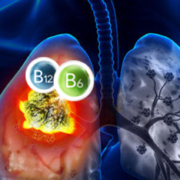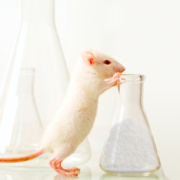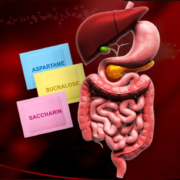Artificial Sweeteners and Cancer: The Bottom Line
In the paper on artificial sweeteners and cancer risk that I covered on Tuesday, the researchers made it clear that although the study was done well, cause and effect cannot be determined. They also acknowledge that because 80% of the subjects were women, the results couldn’t be applied to the entire French population, let alone the population of any other country. What it could mean is that artificial sweeteners in combination with other dietary, environmental, or genetic factors could contribute to cancer development.
Here are some other issues with the data and the analysis:
- They did not test the subjects for cancer before the study. They eliminated several thousand people for already having had cancer, but they didn’t check for present cancers that hadn’t reached the point where they could be diagnosed. That would have added to the complexity, but it was possible.
- They didn’t seem to ask when the subjects began using artificial sweeteners. The mean age was 42 at the beginning of the study, so subjects might have been using them for decades; some may have been using them for only a few days. Most cancers take years to develop, so the possible link between artificial sweeteners and cancer is probably zero in people who’ve used them a short time. The real question is whether long-term users had a higher risk.
- I would like to have seen scattergrams of artificial-sweetener intake along with fruit-and-vegetable intake on rates of cancer. In other words, could the increase in fruits and/or vegetables reduce the impact of artificial sweeteners? Fiber intake, exercise, and BMI could also have been plotted against artificial-sweetener consumption. They accounted for these statistically, but seeing what happens when plotted could show how behavioral changes might help neutralize the artificial sweeteners.
- One thing they didn’t is factor in is use of animal products (except dairy) and the risk of cancer—the only factors accounted for were weight-loss, a healthy diet, and a Western diet. All the studies I’ve seen assess meat intake and cancer, especially processed meat.
The Bottom Line
Take this study for what it is: an indicator that there are numerous potential causes of cancers. Clinical trials can determine cause and effect if the studies are well designed. This study did a wonderful job of measuring the intake of artificial sweeteners; they just didn’t take it all the way in analyzing the data they collected.
So what should you do? If you use artificial sweeteners, that’s fine. If you prefer not to or want to cut down, that’s fine as well. There’s nothing from this study that indicates there’s anything to fear. Paula and I both use artificial sweeteners, we’ll continue to use them, and we won’t worry about them at all.
I still believe that obesity is a greater risk, not just for cancer but for many other health issues; if artificial sweeteners help you reduce or maintain your weight, I’d say the scale tips toward using them.
We’re taking next week off for spring break, so I’ll see you back here April 12. Then we’ll look at what science shows you can do to really limit your risk of cancer.
What are you prepared to do today?
Dr. Chet
Reference: https://doi.org/10.1371/journal.pmed.1003950









